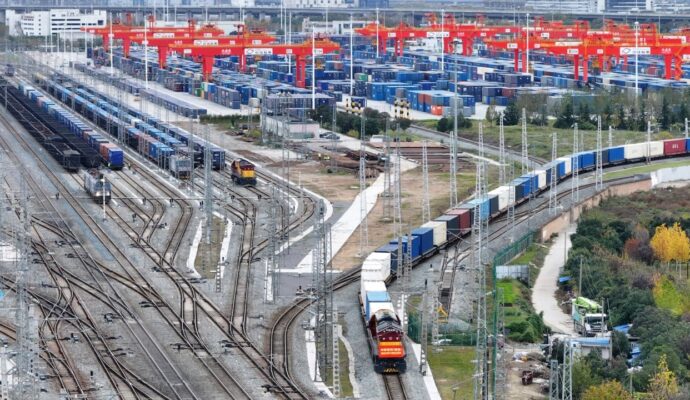Alibaba Group Holding has announced it will not proceed with a full spin-off of its cloud computing unit, as it posted 9 per cent growth in revenues in the September quarter, in its first earnings report since new leadership took over the Chinese e-commerce giant in September.
The Hangzhou-based company said that a full spin-off of the Cloud Intelligence Group “may not achieve the intended effect of shareholder value enhancement” because of the uncertainties brought about by recently expanded US export restrictions on advanced computing chips.
Meanwhile, the company also said it will pay out its first-ever annual dividends, which will total around US$2.5 billion.
The Hangzhou-based company recorded total revenue of 224.79 billion yuan (US$30.8 billion) in the quarter, in line with the consensus estimate of 224.1 billion yuan.
The growth was slower than the 14 per cent seen in the June quarter, when the firm saw improvements across all business segments amid a post-Covid-19 economic bump that has since fizzled out.
Net income reached 27.7 billion yuan in the three months to September 30, worse than the 30.7 billion yuan expected by analysts surveyed by Bloomberg.
“Alibaba Group delivered a solid quarter, marked by renewed momentum and energy across multiple businesses as a result of our strategic reorganisation,” said Alibaba CEO Eddie Wu Yongming.
“Through a more flexible organisational governance mechanism, we aim to capture brand new opportunities from the ongoing AI technological transformation and create more value for our customers.”
Separately, Alibaba founder Jack Ma’s family trusts, JC Properties and JSP Investment Plan, plan to sell a combined US$870 million worth of Alibaba shares on November 21, according to filings to the US Securities and Exchange Commission dated Wednesday.
Shares of Alibaba closed down 2.22 per cent at HK$81.35 on Thursday in Hong Kong, ahead of the earnings release.

The earnings marked the first quarterly report presented by Alibaba, which also owns the South China Morning Post, after Joe Tsai and Wu, two Alibaba co-founders, took the reins from former chairman and CEO Daniel Zhang Yong in September.
The leadership change was part of a sweeping restructuring plan announced by the e-commerce giant in March, which would break its sprawling business into six units including e-commerce, cloud computing and logistics, each potentially seeking their own fundraising avenues through initial public offerings.
The most recent retail sales data has shown improvement in the consumer market. In October, retail sales rose by 7.6 per cent year on year, beating market expectations, thanks to a spending spree during the extended “golden week” holiday.
In the third quarter, mainland China’s retail sales grew by 5.5 per cent in September, compared with a 4.6 per cent increase in August.
Last weekend, Alibaba and JD.com concluded this year’s Singles’ Day event, the world’s largest online shopping season, by reporting positive year-on-year growth in sales and order volume, but neither company revealed an exact sales tally.



